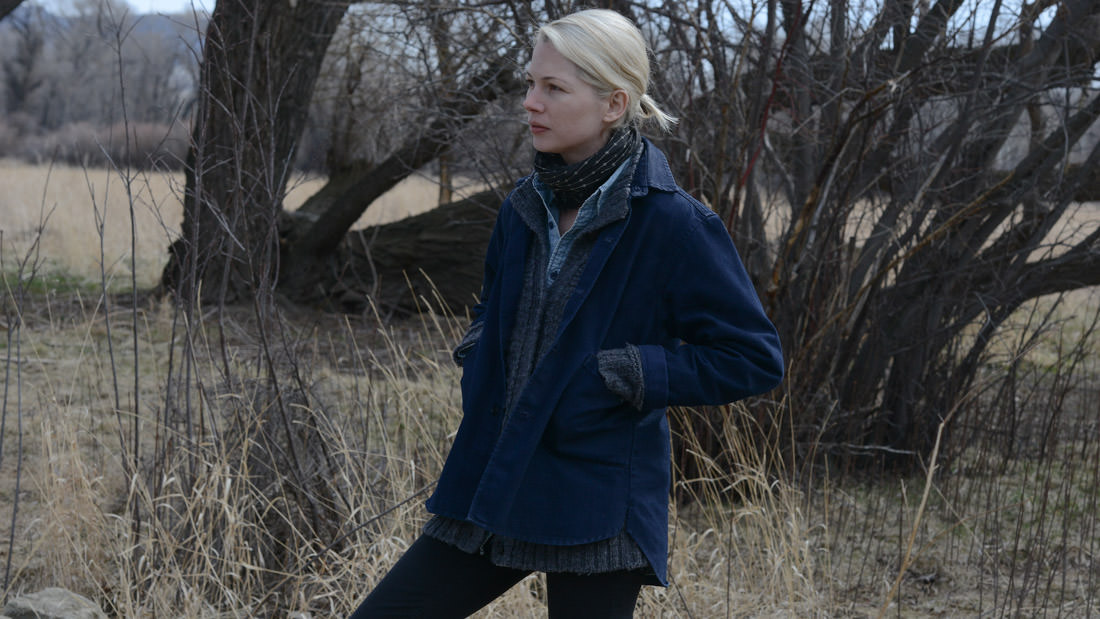Kelly Reichardt’s “River of Grass” premiered at the Sundance
International Film Festival over twenty years ago, and has been restored for
inclusion in the “Collection” Program of this year’s fest before an imminent
theatrical re-release. Over the two decades since, Reichardt has become one of
the most important voices in American cinema, delivering great film after great film,
including “Old Joy,” “Wendy and Lucy,” “Meek’s Cutoff” and “Night Moves.” And
so now she returns to Sundance something of a conquering hero, a chronicler of
the American landscape so essential to the international film world that the
premiere of her latest film was also the first time she was in the “big house”
in Park City, the 1,270-seat Eccles Theatre. Obtaining the primetime slot was
probably easier with the biggest “name” cast that Reichardt has ever employed.
It’s a dream team of actresses, fronted by Laura Dern, Michelle Williams and
Kristen Stewart. Yet any concern that “Certain Women” is in any way Reichardt “selling
out” to the mainstream to get more eyes on her films should be dismissed. “Certain
Women” is arguably Reichardt’s most deliberate, slow-paced, subtle film to
date, proof that this incredibly talented filmmaker’s distinct voice is still
essential.
Easily loglined as “A Montana ‘Short Cuts’”,” “Certain Women”
adapts three short stories by American fiction writer Maile Meloy. They all
take place in a small Montana town, and all feel part of Reichardt’s vision of
a world that doesn’t stop moving for human need. Reichardt has always displayed
a stunning gift for capturing nature, but her use of the constant flow of
existence around her characters in “Certain Women” is one of its most
captivating aspects. The film opens with a train moving through this small town
(and you can hear its horn in the background near-constantly for the first
segment), and Reichardt regularly uses similar devices of elements that go past
our characters from a river in the middle of nowhere to so many shots of cars
in the distance traveling along a freeway. It’s as if she’s making us aware of
the relative smallness of her stories—gentle, nuanced studies of people that
the rest of the world, human and natural, just speeds by.
The first story of “Certain Women” stars Laura Dern as a
lawyer who is having an affair with a married man (James Le Gros) and returns
one day to her office to meet a client (Jared Harris) who is at the end of his
rope. The man was disabled in a workplace accident but then accepted an
insurance payment, nullifying his ability to sue his company. He can’t work at
all because he has double vision from the accident, but he refuses to take his
attorney’s sad advice to give it up. They travel to another personal injury
attorney who tells him the same thing Dern’s character has for months—but he
needed to hear it from a man—and then essentially breaks down.
After the first narrative seems to have reached its
conclusion, we move across town to a married couple (Michelle Williams and Le
Gros) who are breaking ground on a new home, visiting an old friend (Rene
Auberjonois) in the hope that he’ll give them sandstone that has been sitting
in his front yard for years. This arguably transitional center story gives way
to the film’s most triumphant segment, the story of a ranch hand (breakthrough
Lily Gladstone) who happens upon a class in School Law being taught by an
out-of-towner (Kristen Stewart). The lonely woman doesn’t care about the class;
she’s more interested in the teacher. They go out to eat after every class, and
Reichardt lyrically captures the arc of a daily life of routine as the woman
goes about the business of working a farm, waiting for the next time she can
see the new person in her life.
“Certain Women” has no direct, this-is-what-this-is-about
moments. It will be frustratingly opaque for some viewers who need more periods
than ellipses in their work. And yet themes feel like they emerge organically from
the characters and setting. There’s a sense of inevitability to these stories,
from the man who fought against the fact that he never had a way out of his
legal predicament to the sandstone that once held so much promise for another
man but now lays in a pile, to the poignant ending of the tale of a woman whose
days are largely indistinguishable from each other until she meets someone
new. There are also subtle details to be appreciated when it comes to gender
roles. Dern’s character is an attorney whose client wants to use her more than listen
to her; Williams’ is a business owner who doesn’t get the same respect as her
husband; Stewart’s attorney/teacher works multiple jobs and drives hours to get to an unrewarding one.
What a lot of people miss about Reichardt as they’re
praising her lyrical sense of the space of this world is her ability with
actors. None of the performers in “Certain Women” are given much time and yet
they all make an impact. Jared Harris hasn’t been this good in years, but the
film belongs to the women—Dern, Stewart, and Gladstone, in particular. Williams
isn’t bad—she never is—but her narrative feels the least satisfying, the
arguable weakness of the film, although in some ways it ties together the
business aspects of the first story with the landscape of the last one. Stewart
and Gladstone give the most affecting performances, turns driven more by
internal monologue than proclamations.
Watching “Certain Women” in conjunction with “River of Grass”
makes for an inevitable comparison—how has this filmmaker changed or progressed
from her first Sundance film to her last? “River of Grass,” the story of a bored young
woman in the Florida Everglades named Cozy (Lisa Bowman) who meets a local
schmuck named Lee (Larry Fessenden), is a much broader exercise, even bringing
mind to “Raising Arizona” at times in the wacky stupidity of its central
characters (“I didn’t know much about hold-ups and Lee didn’t want me getting
in the way of his crime spree”). It’s almost like “Bonnie Clyde rewritten by
Carl Hiaasen.” Like a lot of mid-‘90s cinema, it thinks there’s more value in
malaise than there is but I like Fessenden’s loose work and Reichardt’s sense
of humor. And it’s not much of a spoiler to say that “River of Grass” ends with
an extended shot of a freeway, cars blending together and heading off over the
horizon. Twenty years later, “Certain Women” offers a deeper, more ambitious examination
of that flow of humanity, but it’s been there since the very beginning.












